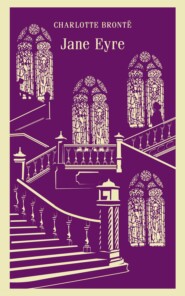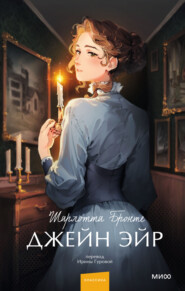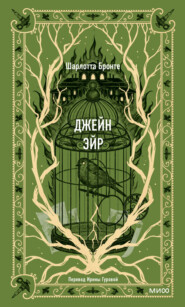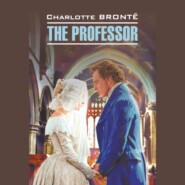По всем вопросам обращайтесь на: info@litportal.ru
(©) 2003-2024.
✖
Shirley
Настройки чтения
Размер шрифта
Высота строк
Поля
Mr. Helstone pushed out his cynical lip, wrinkled his brown forehead, and gave an inarticulate grunt.
“Did she not suit you? Was she not good-tempered? Did you not get used to her? Were you not sorry when she died?”
“Caroline,” said Mr. Helstone, bringing his hand slowly down to within an inch or two of the table, and then smiting it suddenly on the mahogany, “understand this: it is vulgar and puerile to confound generals with particulars. In every case there is the rule and there are the exceptions. Your questions are stupid and babyish. Ring the bell, if you have done breakfast.”
The breakfast was taken away, and that meal over, it was the general custom of uncle and niece to separate, and not to meet again till dinner; but today the niece, instead of quitting the room, went to the window-seat, and sat down there. Mr. Helstone looked round uneasily once or twice, as if he wished her away; but she was gazing from the window, and did not seem to mind him: so he continued the perusal of his morning paper – a particularly interesting one it chanced to be, as new movements had just taken place in the Peninsula, and certain columns of the journal were rich in long dispatches from General Lord Wellington. He little knew, meantime, what thoughts were busy in his niece’s mind – thoughts the conversation of the past half-hour had revived but not generated; tumultuous were they now, as disturbed bees in a hive, but it was years since they had first made their cells in her brain.
She was reviewing his character, his disposition, repeating his sentiments on marriage. Many a time had she reviewed them before, and sounded the gulf between her own mind and his; and then, on the other side of the wide and deep chasm, she had seen, and she now saw, another figure standing beside her uncle’s – a strange shape, dim, sinister, scarcely earthly – the half-remembered image of her own father, James Helstone, Matthewson Helstone’s brother.
Rumours had reached her ear of what that father’s character was; old servants had dropped hints; she knew, too, that he was not a good man, and that he was never kind to her. She recollected – a dark recollection it was – some weeks that she had spent with him in a great town somewhere, when she had had no maid to dress her or take care of her; when she had been shut up, day and night, in a high garret room, without a carpet, with a bare uncurtained bed, and scarcely any other furniture; when he went out early every morning, and often forgot to return and give her her dinner during the day, and at night, when he came back, was like a madman, furious, terrible, or – still more painful – like an idiot, imbecile, senseless. She knew she had fallen ill in this place, and that one night, when she was very sick he had come raving into the room, and said he would kill her, for she was a burden to him. Her screams had brought aid; and from the moment she was then rescued from him she had never seen him, except as a dead man in his coffin.
That was her father. Also she had a mother, though Mr. Helstone never spoke to her of that mother, though she could not remember having seen her; but that she was alive she knew. This mother was then the drunkard’s wife. What had their marriage been? Caroline, turning from the lattice, whence she had been watching the starlings (though without seeing them), in a low voice, and with a sad, bitter tone, thus broke the silence of the room;
“You term marriage miserable, I suppose, from what you saw of my father and mother’s. If my mother suffered what I suffered when I was with papa, she must have had a dreadful life.”
Mr. Helstone, thus addressed, wheeled about in his chair, and looked over his spectacles at his niece. He was taken aback.
Her father and mother! What had put it into her head to mention her father and mother, of whom he had never, during the twelve years she had lived with him, spoken to her? That the thoughts were self-matured, that she had any recollections or speculations about her parents, he could not fancy.
“Your father and mother? Who has been talking to you about them?”
“Nobody; but I remember something of what papa was, and I pity mamma. Where is she?”
This “Where is she?” had been on Caroline’s lips hundreds of times before, but till now she had never uttered it.
“I hardly know,” returned Mr. Helstone; “I was little acquainted with her. I have not heard from her for years: but wherever she is, she thinks nothing of you; she never inquires about you. I have reason to believe she does not wish to see you. Come, it is school-time. You go to your cousin at ten, don’t you? The clock has struck.”
Perhaps Caroline would have said more; but Fanny, coming in, informed her master that the churchwardens wanted to speak to him in the vestry. He hastened to join them, and his niece presently set out for the cottage.
The road from the rectory to Hollow’s Mill inclined downwards; she ran, therefore, almost all the way. Exercise, the fresh air, the thought of seeing Robert, at least of being on his premises, in his vicinage, revived her somewhat depressed spirits quickly. Arriving in sight of the white house, and within hearing of the thundering mill and its rushing watercourse, the first thing she saw was Moore at his garden gate. There he stood, in his belted Holland blouse, a light cap covering his head, which undress costume suited him. He was looking down the lane, not in the direction of his cousin’s approach. She stopped, withdrawing a little behind a willow, and studied his appearance.
“He has not his peer,” she thought. “He is as handsome as he is intelligent. What a keen eye he has! What clearly-cut, spirited features – thin and serious, but graceful! I do like his face, I do like his aspect, I do like him so much – better than any of those shuffling curates, for instance – better than anybody; bonny Robert!”
She sought “bonny Robert’s” presence speedily. For his part, when she challenged his sight, I believe he would have passed from before her eyes like a phantom, if he could; but being a tall fact, and no fiction, he was obliged to stand the greeting. He made it brief. It was cousin-like, brother-like, friend-like, anything but lover-like. The nameless charm of last night had left his manner: he was no longer the same man: or, at any rate, the same heart did not beat in his breast. Rude disappointment, sharp cross! At first the eager girl would not believe in the change, though she saw and felt it. It was difficult to withdraw her hand from his, till he had bestowed at least something like a kind pressure; it was difficult to turn her eyes from his eyes, till his looks had expressed something more and fonder than that cool welcome.
A lover masculine so disappointed can speak and urge explanation, a lover feminine can say nothing; if she did, the result would be shame and anguish, inward remorse for self-treachery. Nature would brand such demonstration as a rebellion against her instincts, and would vindictively repay it afterwards by the thunderbolt of self-contempt smiting suddenly in secret. Take the matter as you find it: ask no questions, utter no remonstrances; it is your best wisdom. You expected bread, and you have got a stone: break your teeth on it, and don’t shriek because the nerves are martyrized; do not doubt that your mental stomach – if you have such a thing – is strong as an ostrich’s; the stone will digest. You held out your hand for an egg, and fate put into it a scorpion. Show no consternation: close your fingers firmly upon the gift; let it sting through your palm. Never mind; in time, after your hand and arm have swelled and quivered long with torture, the squeezed scorpion will die, and you will have learned the great lesson how to endure without a sob. For the whole remnant of your life, if you survive the test – some, it is said, die under it – you will be stronger, wiser, less sensitive. This you are not aware of, perhaps, at the time, and so cannot borrow courage of that hope. Nature, however, as has been intimated, is an excellent friend in such cases, sealing the lips, interdicting utterance, commanding a placid dissimulation – a dissimulation often wearing an easy and gay mien at first, settling down to sorrow and paleness in time, then passing away, and leaving a convenient stoicism, not the less fortifying because it is half-bitter.
Half-bitter! Is that wrong? No; it should be bitter: bitterness is strength – it is a tonic. Sweet, mild force following acute suffering you find nowhere; to talk of it is delusion. There may be apathetic exhaustion after the rack. If energy remains, it will be rather a dangerous energy – deadly when confronted with injustice.
Who has read the ballad of Puir Mary Lee – that old Scotch ballad, written I know not in what generation nor by what hand? Mary had been ill-used – probably in being made to believe that truth which was falsehood. She is not complaining, but she is sitting alone in the snowstorm, and you hear her thoughts. They are not the thoughts of a model heroine under her circumstances, but they are those of a deeply-feeling, strongly-resentful peasant-girl. Anguish has driven her from the ingle-nook of home to the white-shrouded and icy hills. Crouched under the “cauld drift,” she recalls every image of horror—“the yellow-wymed ask,” “the hairy adder,” “the auld moon-bowing tyke,” “the ghaist at e’en,” “the sour bullister,” “the milk on the taed’s back.” She hates these, but “waur she hates Robin-a-Ree.”
“Oh, ance I lived happily by yon bonny burn—
The warld was in love wi’ me;
But now I maun sit ‘neath the cauld drift and mourn,
And curse black Robin-a-Ree!
“Then whudder awa, thou bitter biting blast,
And sough through the scrunty tree,
And smoor me up in the snaw fu’ fast,
And n’er let the sun me see!
“Oh, never melt awa, thou wreath o’ snaw,
That’s sae kind in graving me;
But hide me frae the scorn and guffaw
O’ villains like Robin-a-Ree!”
But what has been said in the last page or two is not germane to Caroline Helstone’s feelings, or to the state of things between her and Robert Moore. Robert had done her no wrong; he had told her no lie; it was she that was to blame, if anyone was. What bitterness her mind distilled should and would be poured on her own head. She had loved without being asked to love – a natural, sometimes an inevitable chance, but big with misery.
Robert, indeed, had sometimes seemed to be fond of her; but why? Because she had made herself so pleasing to him, he could not, in spite of all his efforts, help testifying a state of feeling his judgment did not approve nor his will sanction. He was about to withdraw decidedly from intimate communication with her, because he did not choose to have his affections inextricably entangled, nor to be drawn, despite his reason, into a marriage he believed imprudent. Now, what was she to do? To give way to her feelings, or to vanquish them? To pursue him, or to turn upon herself? If she is weak, she will try the first expedient – will lose his esteem and win his aversion; if she has sense, she will be her own governor, and resolve to subdue and bring under guidance the disturbed realm of her emotions. She will determine to look on life steadily, as it is; to begin to learn its severe truths seriously, and to study its knotty problems closely, conscientiously.
It appeared she had a little sense, for she quitted Robert quietly, without complaint or question, without the alteration of a muscle or the shedding of a tear, betook herself to her studies under Hortense as usual, and at dinner-time went home without lingering.
When she had dined, and found herself in the rectory drawing room alone, having left her uncle over his temperate glass of port wine, the difficulty that occurred to and embarrassed her was, “How am I to get through this day?”
Last night she had hoped it would be spent as yesterday was, that the evening would be again passed with happiness and Robert. She had learned her mistake this morning; and yet she could not settle down, convinced that no chance would occur to recall her to Hollow’s Cottage, or to bring Moore again into her society.
He had walked up after tea more than once to pass an hour with her uncle. The doorbell had rung, his voice had been heard in the passage just at twilight, when she little expected such a pleasure; and this had happened twice after he had treated her with peculiar reserve; and though he rarely talked to her in her uncle’s presence, he had looked at her relentingly as he sat opposite her worktable during his stay. The few words he had spoken to her were comforting; his manner on bidding her good night was genial. Now, he might come this evening, said False Hope. She almost knew it was False Hope which breathed the whisper, and yet she listened.
She tried to read – her thoughts wandered; she tried to sew – every stitch she put in was an ennui, the occupation was insufferably tedious; she opened her desk and attempted to write a French composition – she wrote nothing but mistakes.
Suddenly the doorbell sharply rang; her heart leaped; she sprang to the drawing room door, opened it softly, peeped through the aperture. Fanny was admitting a visitor – a gentleman – a tall man – just the height of Robert. For one second she thought it was Robert – for one second she exulted; but the voice asking for Mr. Helstone undeceived her. That voice was an Irish voice, consequently not Moore’s, but the curate’s – Malone’s. He was ushered into the dining room, where, doubtless, he speedily helped his rector to empty the decanters.
It was a fact to be noted, that at whatever house in Briarfield, Whinbury, or Nunnely one curate dropped in to a meal – dinner or tea, as, the case might be – another presently followed, often two more. Not that they gave each other the rendezvous, but they were usually all on the run at the same time; and when Donne, for instance, sought Malone at his lodgings and found him not, he inquired whither he had posted, and having learned of the landlady his destination, hastened with all speed after him. The same causes operated in the same way with Sweeting. Thus it chanced on that afternoon that Caroline’s ears were three times tortured with the ringing of the bell and the advent of undesired guests; for Donne followed Malone, and Sweeting followed Donne; and more wine was ordered up from the cellar into the dining room (for though old Helstone chid the inferior priesthood when he found them “carousing,” as he called it, in their own tents, yet at his hierarchical table he ever liked to treat them to a glass of his best), and through the closed doors Caroline heard their boyish laughter, and the vacant cackle of their voices. Her fear was lest they should stay to tea, for she had no pleasure in making tea for that particular trio. What distinctions people draw! These three were men – young men – educated men, like Moore; yet, for her, how great the difference! Their society was a bore – his a delight.
Not only was she destined to be favoured with their clerical company, but Fortune was at this moment bringing her four other guests – lady guests, all packed in a pony-phaeton now rolling somewhat heavily along the road from Whinbury: an elderly lady and three of her buxom daughters were coming to see her “in a friendly way,” as the custom of that neighbourhood was. Yes, a fourth time the bell clanged. Fanny brought the present announcement to the drawing room;
“Mrs. Sykes and the three Misses Sykes.”
When Caroline was going to receive company, her habit was to wring her hands very nervously, to flush a little, and come forward hurriedly yet hesitatingly, wishing herself meantime at Jericho. She was, at such crises, sadly deficient in finished manner, though she had once been at school a year. Accordingly, on this occasion, her small white hands sadly maltreated each other, while she stood up, waiting the entrance of Mrs. Sykes.
In stalked that lady, a tall, bilious gentlewoman, who made an ample and not altogether insincere profession of piety, and was greatly given to hospitality towards the clergy. In sailed her three daughters, a showy trio, being all three well-grown, and more or less handsome.
In English country ladies there is this point to be remarked. Whether young or old, pretty or plain, dull or sprightly, they all (or almost all) have a certain expression stamped on their features, which seems to say, “I know – I do not boast of it, but I know that I am the standard of what is proper; let everyone therefore whom I approach, or who approaches me, keep a sharp lookout, for wherein they differ from me – be the same in dress, manner, opinion, principle, or practice – therein they are wrong.”
Mrs. and Misses Sykes, far from being exceptions to this observation, were pointed illustrations of its truth. Miss Mary – a well-looked, well-meant, and, on the whole, well-dispositioned girl – wore her complacency with some state, though without harshness. Miss Harriet – a beauty – carried it more overbearingly; she looked high and cold. Miss Hannah, who was conceited, dashing, pushing, flourished hers consciously and openly. The mother evinced it with the gravity proper to her age and religious fame.
The reception was got through somehow. Caroline “was glad to see them” (an unmitigated fib), hoped they were well, hoped Mrs. Sykes’s cough was better (Mrs. Sykes had had a cough for the last twenty years), hoped the Misses Sykes had left their sisters at home well; to which inquiry the Misses Sykes, sitting on three chairs opposite the music stool, whereon Caroline had undesignedly come to anchor, after wavering for some seconds between it and a large armchair, into which she at length recollected she ought to induct Mrs. Sykes – and indeed that lady saved her the trouble by depositing herself therein – the Misses Sykes replied to Caroline by one simultaneous bow, very majestic and mighty awful. A pause followed. This bow was of a character to ensure silence for the next five minutes, and it did. Mrs. Sykes then inquired after Mr. Helstone, and whether he had had any return of rheumatism, and whether preaching twice on a Sunday fatigued him, and if he was capable of taking a full service now; and on being assured he was, she and all her daughters, combining in chorus, expressed their opinion that he was “a wonderful man of his years.”
Pause second.
Miss Mary, getting up the steam in her turn, asked whether Caroline had attended the Bible Society meeting which had been held at Nunnely last Thursday night. The negative answer which truth compelled Caroline to utter – for last Thursday evening she had been sitting at home, reading a novel which Robert had lent her – elicited a simultaneous expression of surprise from the lips of the four ladies.
“We were all there,” said Miss Mary—“mamma and all of us. We even persuaded papa to go. Hannah would insist upon it. But he fell asleep while Mr. Langweilig, the German Moravian minister, was speaking. I felt quite ashamed, he nodded so.”
“And there was Dr. Broadbent,” cried Hannah—“such a beautiful speaker! You couldn’t expect it of him, for he is almost a vulgar-looking man.”
“But such a dear man,” interrupted Mary.
“And such a good man, such a useful man,” added her mother.

















